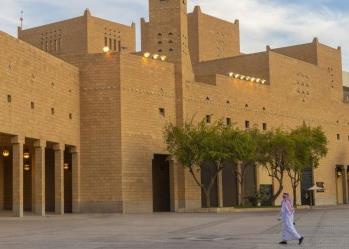
The state-backed developer at the heart of Dubai’s debt problems in 2009 is plotting a route to recovery
When Dubai’s seemingly inexorable rise out of the desert came to an abrupt halt in 2009, the future of one company, perhaps more than any other, was thrown into doubt.
Nakheel, the state-backed property developer behind the emirate’s offshore island projects, had feasted on cheap short-term debt, a speculative real-estate bubble and the hubris that nothing could go wrong. Of course, something did go very badly wrong and the company, along with its owner Dubai World, was forced into a painful $25bn debt restructuring.
By the time the restructuring deal for Dubai World and Nakheel was finally agreed in March and July 2011 respectively, Nakheel had become a direct subsidiary of the Dubai government, replaced several key managers at the firm and put all of its iconic developments on hold. In the process, Nakheel wrote off $21.4bn in the value of its assets and took about $8bn from the Dubai government.
Fulfilling commitments
Nakheel now faces a tough challenge. It must continue to develop projects to provide homes for clients who purchased property in developments such as Dubai Waterfront, a massive real-estate scheme in the south of Dubai that is unlikely to ever be fully finished. It must also grow its business to service $10.5bn of restructured debts.
“The past is over. The old chapter is closed and we have started a new chapter”
The man charged with rescuing Nakheel is Ali Rashid Lootah, who became chairman of the company in March 2010. “The past is over,” he says. “The old chapter is closed and we have started a new chapter.”
This new chapter will focus on fulfilling commitments to those still with outstanding dues from Nakheel, either in the form of home buyers who do not have a property, and financial and trade creditors who are owed money. Lootah is confident that with the agreement of its restructuring proposal, Nakheel has turned a corner. He points to a significant turnaround in the performance of the business currently under way. Last year, the company made a profit of $860m and Lootah is confident about 2011. “I can assure you that $860m profit will be the absolute minimum this year,” he says.
Occupancy in leased property is up from 40 per cent at the end of 2010 to about 70 per cent, and by the end of the year he expects this to be above 80 per cent. The income from Nakheel’s retail businesses is up 15 per cent on 2010 and collections from rentals, retail operations, and sales is up 20 per cent on last year.
“I can tell you there is excellent growth,” says Lootah, who adds that the business is currently adhering to all of the covenants and commitments envisaged in the restructuring plan. In fact, Lootah says Nakheel is currently outperforming the budget outlined in the debt restructuring plan, which should enable it to put off any forced asset disposals.
“It is in our business plan [to sell assets], but because of the improvements achieved in our collection, this has been deferred by two years as we don’t need to sell,” he says.
“I think really it could be deferred even further because the new projects we launch will give us a lot of fresh cash, so why should we sell assets?
“We have property to sell, but the current rental value is down, so the sale price will be less. We hope to sell when the rental is a little bit more to get a better value.”
Asset sales
Although Nakheel is not actively pursuing asset sales, Lootah admits that the firm is currently evaluating offers from two investors that want to buy incomplete Nakheel projects and finish them off to sell. He would not disclose which projects they are, but sees the offers as a good sign that confidence in Dubai’s property market is returning.
“There is oversupply in certain segments of the real-estate market now and it will take time to get over that, but within two years that should be over,” says Lootah.
“Retail is the near-term focus. We are launching a lot of new projects in retail”
“For certain properties we have we see prices going up, like on the Palm Jumeirah and Jumeirah Islands. Demand there is really picking up. Certain sectors of the market are recovering, and usually in any recovery it’s the good properties that move first.”
As a result of this demand, Nakheel has launched plans to develop 104 further villas on the Palm Jumeirah, up from the initial
102 announced. “I squeezed two more on,” says Lootah. The response so far from the market has been “excellent”, he adds.
Despite this, Lootah is keen to ensure that Nakheel’s immediate future is less entwined with the health of the Dubai real-estate market than it has been. Instead, he sees opportunity in developing the business’ retail arm.
“Retail is the near-term focus,” he says. “We are launching a lot of new projects in retail and that will give us excellent income by the time they complete. We think that by 2013, our retail income will double from 2010 levels.”
One of the first new projects to be launched by Nakheel after its restructuring is the extension of the Dragon Mart mall, the development of which could see the developer try and raise fresh commercial finance for the first time since it called for a debt standstill in November 2009.
Fresh funding
“We have already approached a couple of banks about this,” says Lootah.
“We plan to tender the projects in mid-October and hopefully award them in January, so we have around three months to negotiate the bank financing.”
Lootah thinks Nakheel could require about $200m to fund the Dragon Mart extension. “The smart thing is to do business with other people’s money, not your own, particularly now, while the interest rate is very low,” he says.
Lootah also hopes that he will not have to call on an additional $7.3bn, which the government has said will be available to the firm to pay its commitments and keep operating. He expects to not need the full amount. “We will have a requirement for much less than the full $7.3bn,” he says. “We have to increase our earnings and think of new ideas, so why not retail? Next year, we also hope to start developing the mall on the Palm Jumeirah.”
Within the next few months, Lootah hopes Nakheel will be able to finalise the last tranche of a five-year Islamic bond (sukuk), which is being issued to trade creditors as the final part in settling their outstanding claims on the company for work done before 2009.
The programme, initially set up at AED8.5bn ($2.3bn), will only issue about AED5bn in total, he says. Earlier this year, the first tranche of AED3.8bn was issued and a final amount of about AED1bn should be released before the end of the year.
Lootah says the sukuk was issued in two tranches because some arbitration with contractors was still being settled and also several contractors had failed to provide accounts for the sukuk to be paid into by the time the first tranche was issued.
The first tranche has dropped significantly in value since it was issued and now trades at around 68 per cent of its face value. Sales of the sukuk accelerated after it was revealed that the security on the bond was a piece of land in the Dubai Waterfront project that had not yet been reclaimed. Lootah says the price has been driven down by financial investors.
“People who have interests in buying the sukuk were not happy for it to start trading as high as it did,” says Lootah.
He claims some unnamed banks have deliberately spread negative stories about the sukuk in order to buy it at a cheaper price. “We know of certain banks who have given out negative information [about the sukuk] and we know they also have funds to buy it,” he says.
Once the rest of the creditors’ sukuk is issued, Lootah’s other key challenge will be working on the final AED3.7bn owed to property investors that have started to pay for properties that are now no longer going to be built in the short term.
Already AED6.2bn-worth of investment has been settled, mostly by convincing the buyers to accept property in different developments. Lootah hopes to finalise deals with the remaining investors by the end of 2012.
Survival plan
The future of Nakheel may be more positive than it was two years ago, when financial markets were worried that it was about to default on a $3.5bn sukuk that was eventually paid off by money from Abu Dhabi, but the way forward is still challenging.
The transformation of the business from debts and trade claims of $16.1bn before the restructuring, to $4.8bn now is remarkable, especially in a region with little experience of debt restructuring. But oversupply in the retail market in Dubai is perhaps as acute as oversupply in the property sector.
Lootah says that Nakheel in future will be stricter in making sure that investors in its properties are not just speculators planning to flip the properties for a quick profit, although this is a concern, he may not have to worry about for a little while.
Instead, the main concern for Nakheel will be survival, especially with the increasing threat of a double-dip recession in the US and Europe, and its knock-on effects in the Middle East. Lootah is confident that Dubai will be insulated from the economic headwinds in developed markets, but then so were many back in 2008.
CAREER HISTORY
- Studied civil engineering in the US
- Started his career at the UAE Ministry of Public Works
- Became chairman of Nakheel in 2010
- Formed the UAE Society of Engineers
- Also acts as vice-chairman of the local bank Mashreq
You might also like...

UAE builds its downstream and chemicals potential
24 April 2024

Acwa Power eyes selective asset sales
24 April 2024

Bahrain mall to install solar carport
24 April 2024

Aramco extends Karan field bid deadline
24 April 2024
A MEED Subscription...
Subscribe or upgrade your current MEED.com package to support your strategic planning with the MENA region’s best source of business information. Proceed to our online shop below to find out more about the features in each package.








